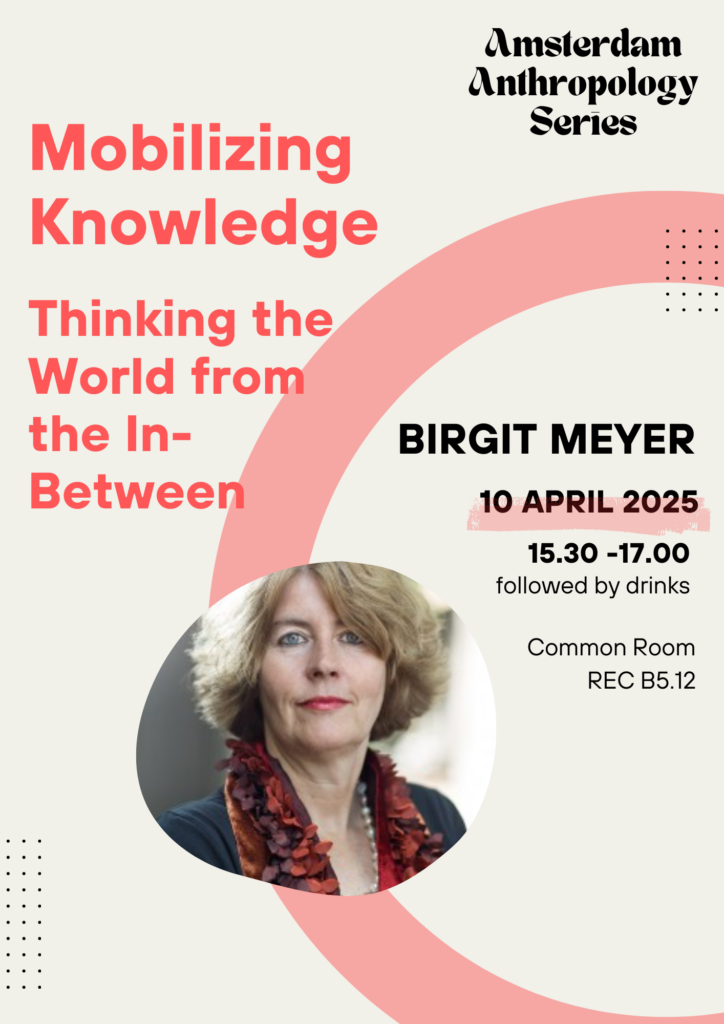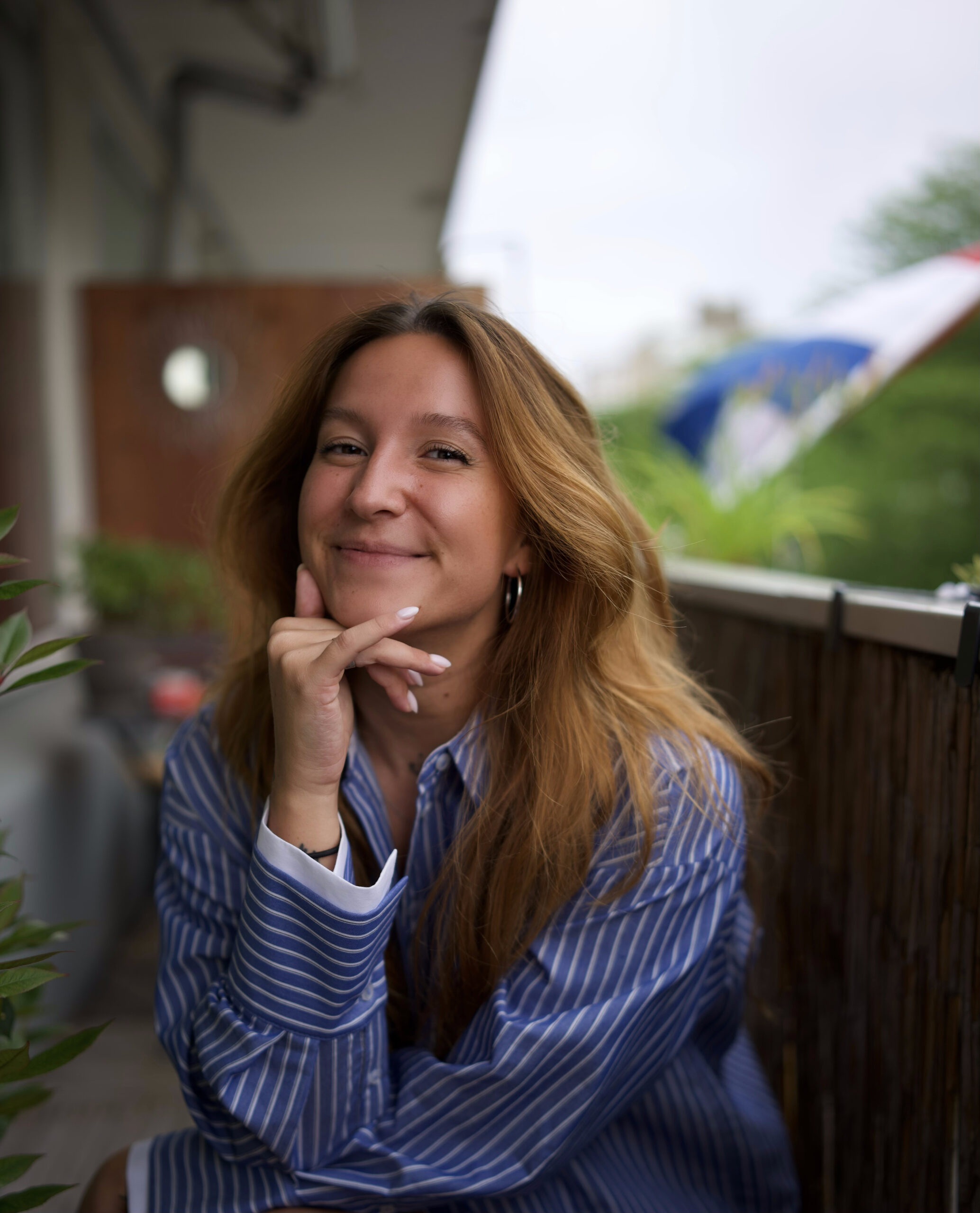Birgit Meyer will speak at the Amsterdam Anthropologies Series at UvA, on Thursday 10 April. Meyer is Professor of Religious Studies at Utrecht University, winner of the Spinoza prize and a former member of the department. Drawing on her long-standing work on religion, Birgit asks what lessons we can learn for our precarious world by thinking from the in-between.
What: Mobilizing Knowledge: Thinking the World from the In-Between, talk by Birgit Meyer
When: Thursday 17 April 2025, 15.30-17.00, followed by drinks
Where: UvA, Common Room B5.12
You can also follow this talk online through this link:

Mobilizing Knowledge: Thinking the World from the In-Between
Birgit Meyer
Working in the interface of anthropology, African studies and religious studies, I focus on themes such as modalities of multireligious coexistence in Southern Ghana and colonial missionary collections of indigenous spiritual artefacts from the Ewe kept in secular museums. Doing so, I have come to appreciate the in-between or interstice as a privileged space for concrete research and critical reflexion. Drawing inspiration from Georg Simmel, I see the interstice as a location where multiple actors become aware of and relate to each other. And once they do so, the space in between them appears a dynamic field of forces, achieving a social, material, corporeal – and possibly even a territorial -reality. Based on my own collaborative research with colleagues from Ghana and Togo, in this lecture I will argue that the aim to understand our highly conflicted, threatened and pluriverse world, may best be achieved by attempts to mobilize knowledge from the unstable, situated space of the in-between. Doing so unhinges Eurocentric epistemologies by taking into account multiple interests, positions and possibilities. As anthropology is the discipline par excellence for this important work, its prime mission is to the convey this into the broader Social and Cultural Sciences and public debates. Rather than limiting ourselves to drawing out particular ontological alterities and incommensurabilities, the point is to undertake a decolonial critique of the legacies of the colonial lexicon and to offer new critical translations from the midst of the interstice.

